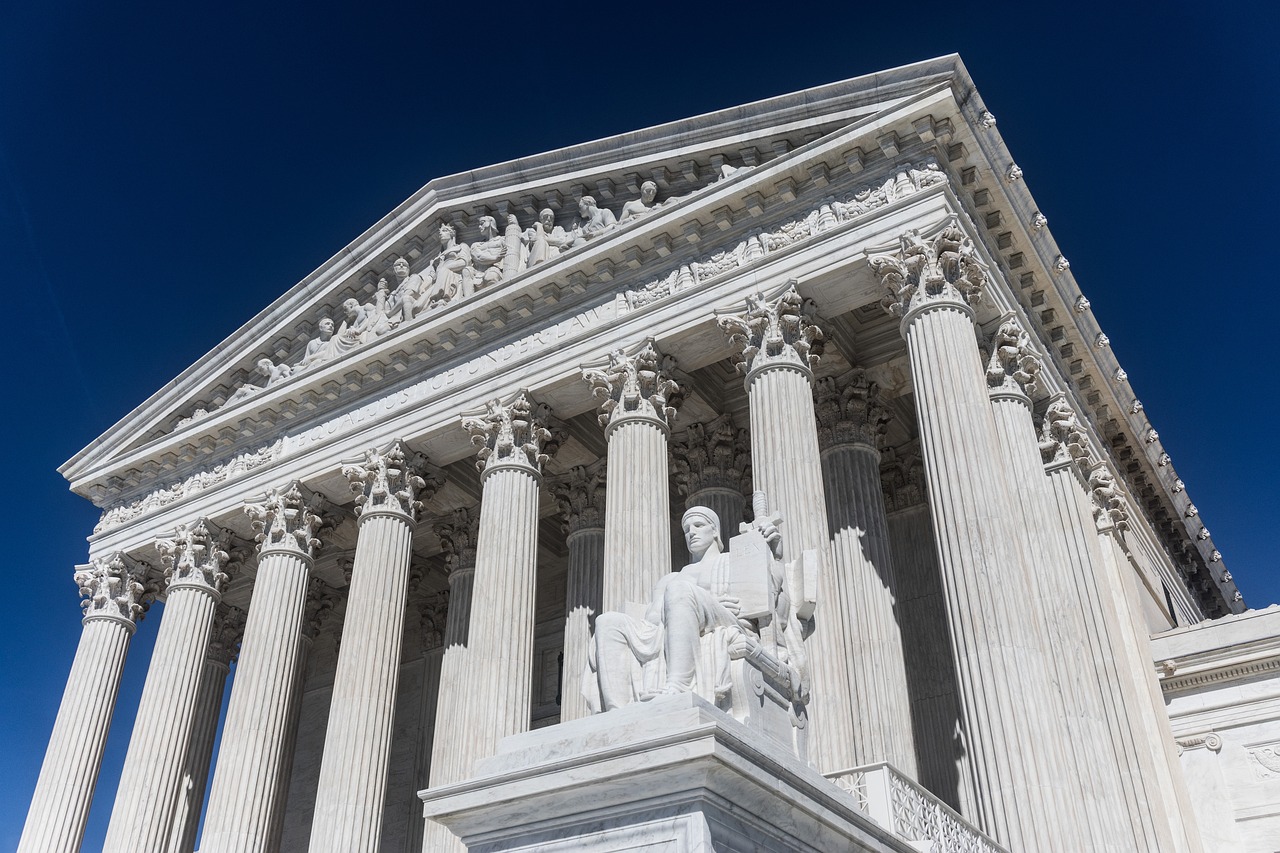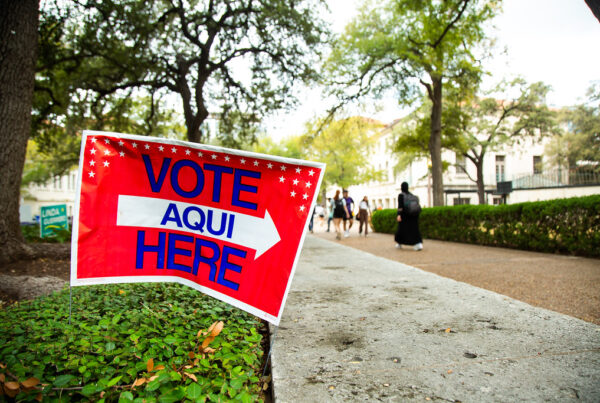Several of the biggest cases before the Supreme Court this term originated in Texas, and that includes the most important gun case the justices will hear this term.
Arguments start Tuesday in United States v. Rahimi, which centers around the constitutionality of a law that prohibits people with domestic violence restraining orders against them from possessing firearms.
In late 2020 and early 2021, police in the Arlington area traced a series of five shootings to Zackey Rahimi. In one incident, he was involved in a car accident and shot at a driver. In another, he shot his gun into the air after a friend’s credit card was declined at a Whataburger.
When police searched Rahimi’s home, they found a rifle and a pistol. Not only was Rahimi charged in the shooting incidents, he was also indicted on federal charges that by having the guns in his possession, he had violated a domestic violence protection order issued prior to the shootings.
That order explicitly barred him from having a gun.
Rahimi’s attorneys asked the court to dismiss the indictment, arguing that the law prohibiting him from having a gun is unconstitutional. After initially upholding the law, the Fifth Circuit reconsidered its opinion in light of a recent Supreme Court decision in a case called New York State Rifle & Pistol Association Inc. v. Bruen.
The Bruen case holds that the Second Amendment right to bear arms cannot be infringed without a well established historical example of a similar regulation, according to Tara Grove, the Vinson Elkins chair in law at the University of Texas at Austin.
“In the Supreme Court’s Bruen case, the court made pretty much everything turn on history. In order for the government to justify a regulation of firearms, the government has to show that there’s some historical analog, either from the 1789, 1787 era or from the 1860s. The court wasn’t clear on which,” Grove said. “But there has to be some historical analog that shows the government has historically done this type of regulation.
“The trick here, of course, is that in the late 18th century and the late 19th century, nobody was regulating domestic violence because that was not even understood as a problem – much less a crime – until well into the 20th century. And so there’s no direct historical analog in this case.”
» GET MORE NEWS FROM AROUND THE STATE: Sign up for Texas Standard’s weekly newsletters
Grove said the court will have to decide how the Bruen case applies in this context, which could have dramatic consequences for regulations that limit gun ownership by those with domestic violence restraining orders.
“If the Supreme Court rules in favor of Rahimi, it will be extremely difficult for states in this country – much less the federal government; this is a federal law at issue here – to bar people who have been convicted of domestic violence orders from owning firearms.”
The focus on historical precedent for gun regulations was a new approach for the court, Grove said.
“The Supreme Court had held a case called Heller and a case called McDonald that the Second Amendment protects an individual right to bear arms. But it didn’t really say much about what that meant,” Grove said. “And lower courts had come up with various standards. In the Bruen case, just last year, the Supreme Court said, okay, we’re going to throw out all of those lower court standards and make everything turn on history.
“This puts a huge burden on the government. It’s also interesting, of course, because in those eras – the late 18th century or the late 19th century – firearms themselves looked very different. But that seems to be not part of the analysis. The question is, can the government today point to something in the past that looks like its current law?”
Grove said she would be surprised if the Supreme Court fully changed their guidance so soon after the Bruen case was decided.
“I think the way the government could win in this case and the way that prohibitions on people with domestic violence orders could continue would be if the court says, ‘Look, it doesn’t have to be an exact match, the historical analog,’” she said. “For example, you could imagine back in the day there were plenty of laws that protected people from potentially violent individuals, even if those laws were not specifically about domestic violence. So I think what the court could do is basically relax the standard without completely changing it.”
Although arguments in this case start this week, a decision isn’t expected until the end of the court’s term in June.















